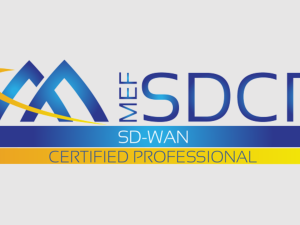Zero-Touch Network Automation

Course Overview
Artificial Intelligence (AI) and software-programmed networks are revolutionizing the design, building, and management of the next-generation networks. With AI and Machine Learning (ML) intelligence incorporated, a logically centralized or distributed software program can control the behavior of an entire network. This is a fundamental step towards achieving zero-touch networks.
When IT-centric data-driven automation techniques are applied to a network that is programmed, it would result in delivering end-to-end services that are fully automated and orchestrated with minimum or zero human intervention required for operations.
Zero-touch, or intent-driven, cognitive networks allow operators to become more efficient, agile, and innovative. It offers advanced dynamic services which require advanced network configuration and design so as to achieve the desired Quality of Experience (QoE) and SLAs governing enterprise services, such as for dynamic network slicing, autonomous vehicles and critical IoT. In addition, intent-driven AI technology and orchestration will allow Telecom Operators to offer a revolutionary E2E customer experience – from ordering to fulfillment to troubleshooting. This would help to increase profit margins, decrease churn and introduce new business models while decreasing the complexity of management.
Both AI and automation will transform the current networks into cognitive network with zero-touch service and network management.
Target Audience
This course is designed for professionals who are interested to understand this important revolution in IT and networking:
- Radio and Packet Core Engineers / Managers
- Project Managers
- IP Engineers
- Packet Core Engineers
- Technical Product Managers
- Technical Marketing Officials
- Technical Strategy Officials
- IT Managers
- C-level decision Makers & Executives
Duration & Training Format
- Classroom: 5 days
- LIVE Virtual: 35 hours
*Note:
- A minimum of 8 or more participants is required for a Classroom session to commence.
- A minimum of 6 or more participants is required for a LIVE Virtual session to commence.
- LIVE Virtual courses can be conducted for 5 hours or 7 hours daily. Please note that the number of training days will be extended if you opt for 5 hours daily.
Upcoming Course Dates
There are no upcoming course dates currently scheduled for this course. If you are keen on attending this course, please register your interest and indicate your preferred training dates via our course enquiry form for us to open a Classroom/LIVE Virtual class schedule for this course.
Course Objectives
This course aims to impart to the participants an in-depth understanding of Network Automation and Orchestration – important technologies that will lead to data-driven or “IT-fication” of telecommunication networks. At the end of this course, participants will be able to:
- Understand core concepts of Virtualization, Cloud computing, Virtualization of Network Elements
- Understand the role of SDN and NFV in network automation and orchestration
- Understand the impact of next generation services (eg. 5G, IoT) on telecom network, transport, management, operations
- Understand the impact of deterministic traffic from next generation services and the role of automation
- Identify the objectives of network programmability and automation
- Explain network automation principles and technologies and study how they are applied on E2E automation and orchestration
- Describe Orchestration, Service Chaining and other related techniques
- Describe The Third Network and Lifecycle Service Orchestration (LSO)
- Explain what is AI and its application in network automation
- Describe an evolution towards Cognitive Network Automation and Orchestration
Key Benefits
Upon the completion of the course, participants will be proficient in the use of modern AI/ML in telecoms. They will understand intent-driven planning, design and operation of telecom network. They will learn how the use of latest technologies in automation and orchestration will lead to a Zero-touch operations network that offers an advanced customer experience.
Course Outline
- Fundamentals of Modern Operator Network Architectures
- The Modern IT-based Networking Ecosystem
- Cloud Computing Technologies
- Network Convergence
- The Internet of Things
- Next Generation Architectures
- Overview of Software Defined Network Management and Operations
- Introduction to Modern Software Delivery
- Introduction to Programmable Transport and Network Services
- Present Mobile Networks and their Limitations
- Next Generation Network Objectives
- The Importance of Deterministic Traffic for Next-generation Network Services
- Network Requirements of Deterministic Traffic
- Next Generation Transport for Deterministic Services
- Abstraction and Control of Transport Networks (ACTN)
- Network and Service Models
- Introduction to AI/ML
- What is AI and ML and Why Use it
- The Machine Learning Pipeline
- Categories of AI and ML and its Uses (Supervised, Unsupervised, Reinforcement Learning)
- Common Algorithms and Models (K-means, PCA, Bayesian Inference, LDA and More)
- Introduction to Deep Neural Networks
- Reinforcement Learning and Applications in Zero-touch Networks
- Advanced AI/ML concepts (XAI, Federated Learning, AutoML, Ensembles)
- Machine Learning Operations for Industrialized Applications (MLOps)
- Introduction to Machine Reasoning and Knowledge Graphs
- Principles of Operator Network Automation & Orchestration
- Network Automation Explained
- Applications
- BGP-based SDN
- Policy-based Automation
- Business Intent-driven Automation
- AI-driven Automation
- Recap of MANO
- LF ONAP – Open Network Automation Platform
- MEF LSO – Lifecycle Service Orchestration
- TMF Autonomous Networks
- Operator Network Automation Programmability towards Zero-Touch Operations
- Script-based Network Actuation
- Automation Modeling Languages
- Script and Model-based Automation
- RESTful APIs to OSS/BSS and CEM Systems
- Network DevOpS
- Network Automation with FOSS Tools
- Cognitive Network Operations and Management
- Standardization
- The Technology Stack and its Evolutions
- Cognitive Layer and Next Gen OSS/BSS
- Zero-Touch Operations, Service Management
- Automation Use Cases
Note: A Certificate of Completion will only be issued upon achieving at least 75% attendance for the course.
Pre-requisites
- A basic understanding of software principles (i.e. APIs)
- A basic understanding of Telecom OSS infrastructure
- Knowledge of IP-based communication is highly recommended
- Experience with IT infrastructure (i.e. Ethernet, Switches, Routers)
- Reasonable knowledge of core networking and functions
- A good understanding of SDN and NFV


